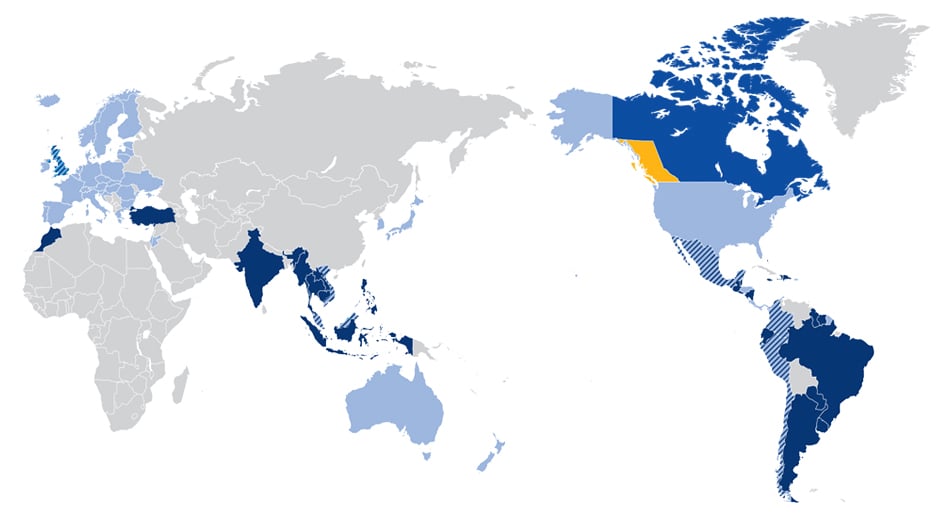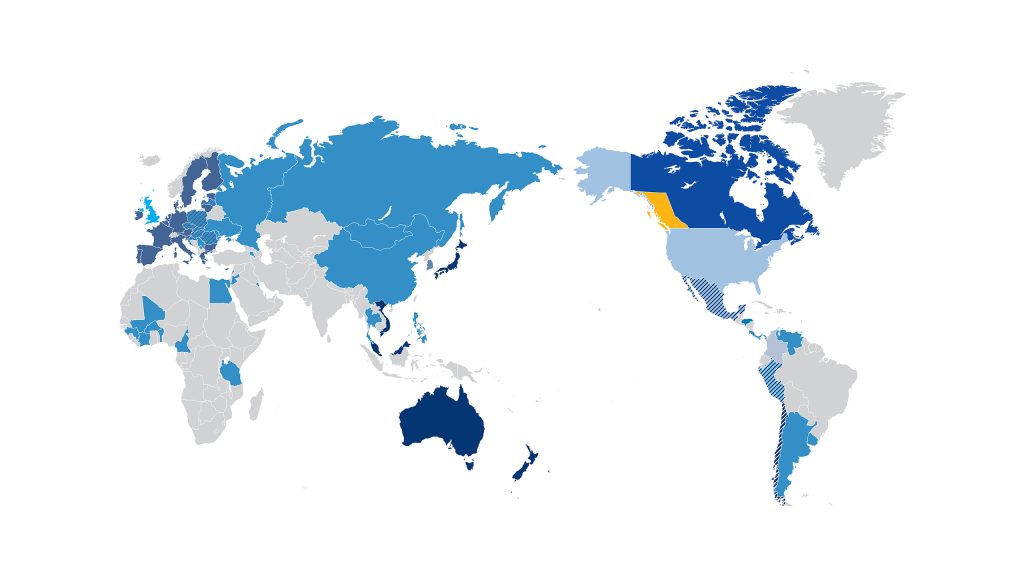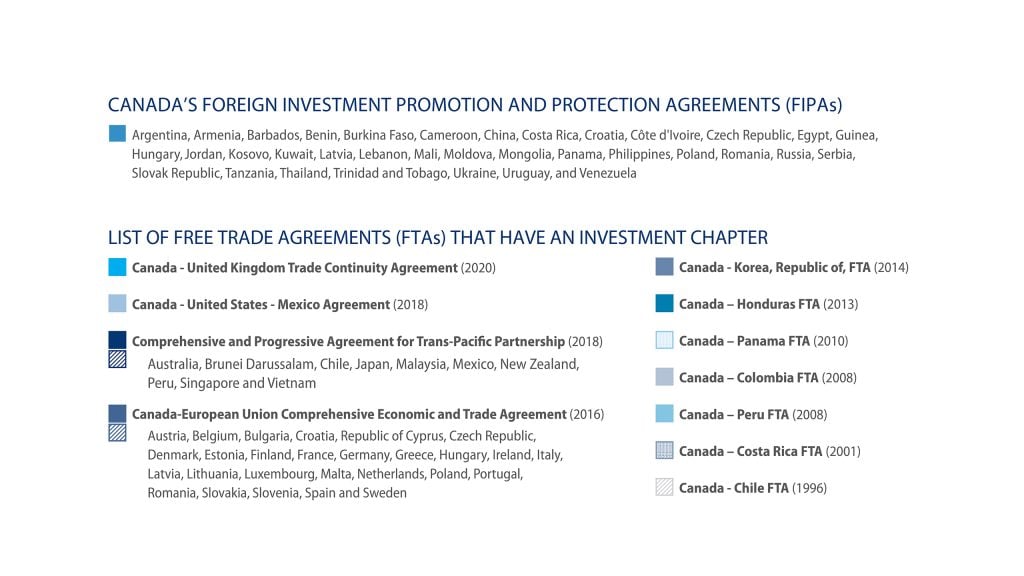British Columbia, Canada Trade & Investment Agreements
Trade and foreign direct investment form a symbiotic relationship, bolstering each other’s impact. Under British Columbia’s and Canada’s free trade agreements (FTAs), B.C. businesses and professionals, and those interested in doing business with B.C., gain new or improved market access for their goods and services. These agreements are avenues for businesses to extend their global reach, seize new market opportunities, and ultimately drive increased revenues, profits and job creation. The safeguards and market access provisions secured in FTAs and foreign investment promotion and protection agreements (FIPAs) also provide opportunities for foreign direct investors considering investing in B.C.
Free Trade Agreements
When you do business with British Columbia, you gain the benefits of dealing with one of the world’s most open, transparent, and stable trading economies with a network of FTAs that provide a strategic competitive advantage to many markets. Our domestic and international FTAs facilitate fair trade and investment and provide an array of advantages, protections and recourse for importers, exporters and investors. These agreements provide predictability in uncertain times, reduce or remove trade barriers, lower costs, and support labour mobility.


Canada-United States-Mexico Agreement (CUSMA)
The CUSMA (also known as USMCA in the United States and T-MEC in Mexico) is a free trade agreement between Canada, Mexico, and the United States that came into effect on July 1, 2020, to replace the North American Free Trade Agreement of 1994.
Comprehensive and Progressive Agreement for Trans-Pacific Partnership (CPTPP)
The CPTPP is a free trade agreement between Canada and 10 other countries in the Asia-Pacific region to establish clear rules for doing business in Australia, Brunei, Chile, Japan, Malaysia, Mexico, New Zealand, Peru, Singapore, and Vietnam.
Canada-European Union Comprehensive Economic and Trade Agreement (CETA)
The CETA has been implemented provisionally since September 2017. This agreement provides preferential market access opportunities in the EU and connects B.C. and the rest of Canada with the world’s second-largest importing single market for goods.
Domestic Trade
Domestic trade agreements seek to reduce and eliminate barriers to the inter-provincial movement of goods, persons, services, and investment, and to bring about a more open and stable domestic commercial environment within Canada.
Are You A B.C. Business?
Tapping into international markets offers the potential for substantial business growth. If you are a B.C. business and interested in learning about FTA provisions and how FTAs benefit exporters, visit our For BC Businesses section.
Foreign Investment Promotion & Protection Agreements
Canada’s foreign investment promotion and protection agreements (FIPAs) and free trade agreements (FTAs) provide an array of advantages and protections for foreign investors in British Columbia. These agreements create a favorable, stable, and predictable business environment, offering the necessary support for investors to establish and expand their operations. By reducing barriers to trade and investment, FIPAs and FTAs facilitate market access for businesses both locally and internationally. Accordingly, they increase opportunities for foreign investors and enable them to broaden their customer base globally and access new markets.


All Canadian Trade and Investment Agreements
Explore Canada’s FTAs, FIPAs, and World Trade Organization (WTO) agreements.
We Can Help
British Columbia has Trade Representatives in markets around the world. Contact the representative nearest you for support in doing business with British Columbia.

